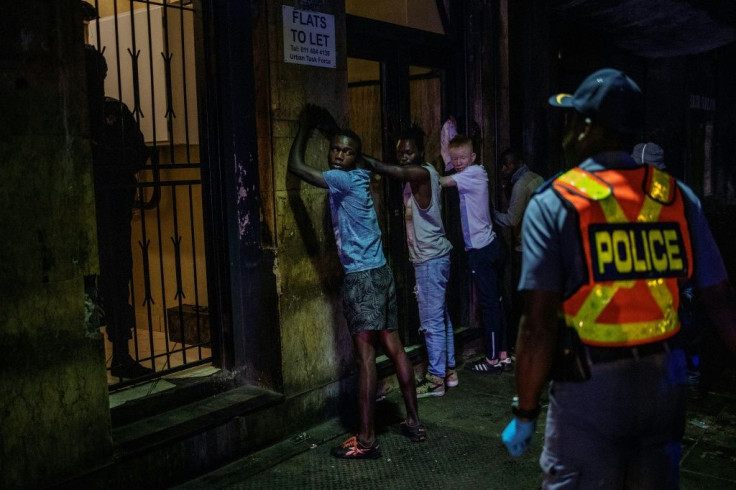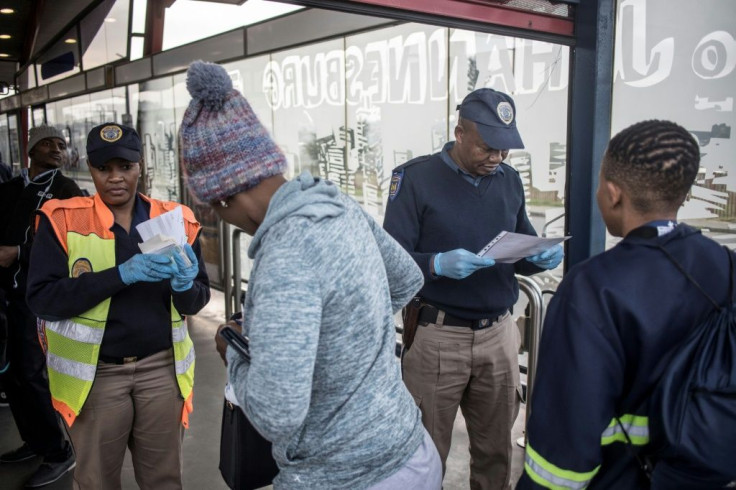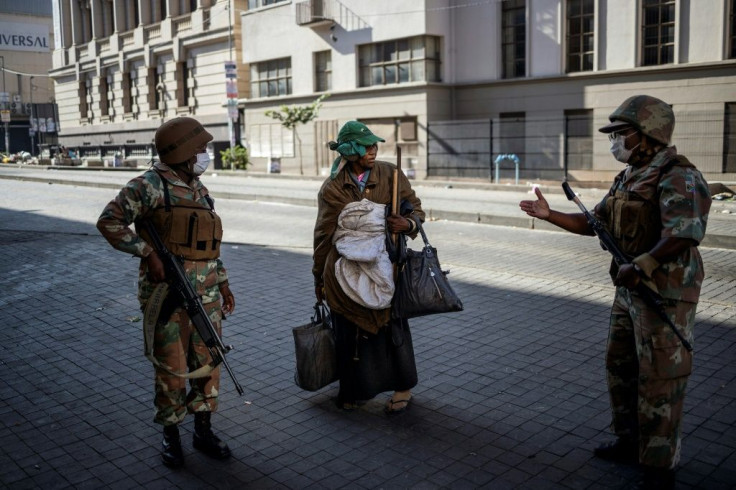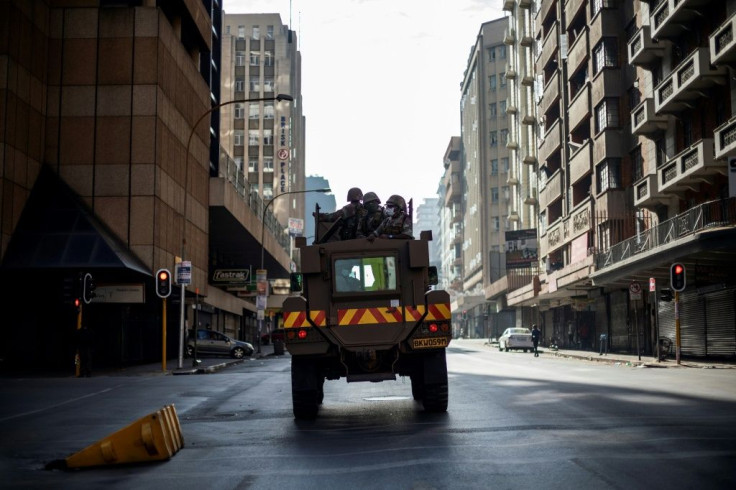'It's Tough': S.Africa Struggles With Virus Lockdown

An early morning haze hung over the skyscrapers of the business district in Johannesburg, South Africa's economic hub, as the city woke up to day one of a national lockdown against coronavirus.
Military soldiers were deployed overnight to help police forces man road blocks and enforce emergency measures meant to keep 57 million South Africans at home for the next three weeks.
Only crucial businesses such as supermarkets, pharmacies and banks will continue operating.
Non-essential outings -- including dog walks and jogging -- have been banned in a bid to curb a virus that nationwide has infected more than 1,000 people and killed at least two in 22 days.
"I feel that a lot of people had been taking for granted that the virus would not affect them," said bank employee Dumisani July, 39, zipping his ID and circulation permit back into his backpack after a police check.
"Now it looks like people are starting to obey the laws," he added, positive about the lockdown despite taking twice the usual time to reach work due to lack of transport.
"Our taxi driver was sanitising each and every client," July remarked as he readjusted his face mask with a gloved hand.
"We were safe and most of us were wearing masks."
Traffic was light in Johannesburg on Friday as suburban commuters stayed put, working remotely from the comfort of the city's leafy outskirts.

Most families have also asked domestic workers to remain home, reducing the flow of travel from lower-income areas.
Police presence was scant in richer areas, where private security vehicles slowly patrolled the tree-lined streets.
But security forces were deployed en masse in the impoverished business district -- a crime-laden neighbourhood usually bustling with small commerce and informal workers.
Checkpoints stood at various intersections as rammed mini-van taxis were stopped and searched, worried-looking passengers clutching their papers as they stood on the sidewalk.
"It was overcrowded as per usual and that was a concern for me," said Andile Biyela, an unemployed single mother who hitched a taxi into town to buy groceries.
"Masks and gloves are inaccessible for people like us in the township, especially people who are suffering financially."

Long queues formed outside supermarkets as people lined up before opening time, standing closely together despite orders to maintain social distance.
Police used batons to disperse a crowd that had started pushing and shoving in front of a shop entrance.
Police captain Xoli Mbele assured that everything would "go smoothly".
"You can see that we talk nicely with them," he told AFP. "Nobody is fighting with them and when we have to take others out of a taxi we organise another taxi."

Further down the road, soldiers roused a community of squatters from their shelter and rounded them up in front of a railway station.
Angered and bleary-eyed, they sat on the ground as police officers discussed the next move.
The government promised to provide temporary shelters for vulnerable persons during the lockdown. But little has been organised so far.
"We don't have a problem with the lockdown," said Jabu Mkhize, 56, as he awaited his fate with the rest of the group.
"We want people to be safe from corona(virus) but they must provide us with a place to stay."
Speaking from behind a stained make-shift cloth mask, Mkhize admitted he feared police brutality as much as the virus.
"That man kicks people," he said, pointing to a police officer in the distance.
Meanwhile, masked military officials stopped people as they walked by. Many of them were living on the street.
"Where am I supposed to go?" asked John Atcheson, a 39-year old homeless plumber.
"I lost my job, I lost my rent and I don't have family," Atcheson told the helmet-clad soldier who stood before him, rifle in hand.
"Let me at least fetch my blanket and my stuff from the place where we are sleeping."
The soldier shrugged and offered Atcheson some hand sanitiser before waving him through.
"It's tough," he muttered. "What can you do?"
sch/sn/ri
© Copyright AFP 2024. All rights reserved.





















